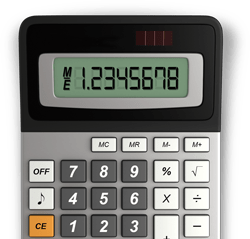Explore Home Loan and Mortgage Options in Texas
Category: Home Buying
By: Sente Mortgage

When it comes to selecting a mortgage for your new home purchase, there are a wide array of loan options available. In our experience, many borrowers are unaware of the number of loan products and don't know the different types of products and programs that might be available.
Below you’ll find information on the most common product distinctions. The actual products may vary depending on the market. Armed with this information, you are prepared to have a conversation with your mortgage banker about the best product to meet your financial goals.
Fixed vs Adjustable Rate Mortgages
When deciding on a loan, one of the first things you will need to assess is whether you would like a fixed rate or adjustable rate mortgage. There are multiple factors to consider, including your current and future financial picture and the length of time you plan to be in the home.
Fixed Rate Mortgage
A Fixed Rate Mortgage is a home loan that will have the same interest rate for the entire payment period. With a fixed rate mortgage the amount of your monthly payment will remain the same, year over year, for the entirety of your loan. For example, if you have a 30-year fixed rate mortgage, the amount of your principal and interest payments will remain the same, every month for the entire 30 year period.*
*Note: For the sake of a basic definition we are excluding taxes, fees, etc. that may change over the life of your loan.
Adjustable Rate Mortgage
An Adjustable Rate Mortgage (commonly referred to as an ARM), is a home loan that the interest payment changes, or adjusts, over the life of the loan. Usually, after an initial fixed period, the interest rate on an ARM will adjust on an annual basis. For example, with a 7/1 ARM home loan, the interest rate will remain fixed during the initial 7-year period on the life of the loan. After that initial 7-year period, the interest rate on your home loan will begin to adjust on an annual basis (every 1 year) based on market rates. Typically with an ARM you will qualify for a lower interest rate at the beginning of your loan. If you're planning to move within 5 - 7 years, an ARM may be a great option for you. The only risk with an ARM is if rates increase after the initial period, you will have to pay the higher rate.
Depending on your financial goals and your current financial situation, you may find that an ARM offers lower upfront payments or helps you qualify for a larger loan amount. However, if you’re ready to set down roots and are committed to the community, a fixed rate mortgage might be the right fit (especially if you don’t see yourself moving anytime soon). A mortgage banker can discuss each potential scenario with you to help you determine your best course of action.
Government-Insured vs Conventional Loans
A government loan is insured either completely or partially by the U.S. government. The government does not lend money to the borrower. Rather, it promises to repay some or all of the money to the lender in the event that the borrower defaults. This reduces the risk for the lender when making a loan.
A government backed loan can be a great option for borrowers with fewer resources (either for the down payment or repayment). Government loans will typically have lower down payment options and lower credit score requirements, but feature a lending limit (or cap the amount you can borrow).
There are 3 major government programs that insure loans.
VA Loans
VA Loans are loans guaranteed by the U.S. Department of Veteran Affairs (VA), and are designed to offer home financing to eligible veterans and surviving spouses. VA Loans are available to eligible veterans who wish to buy a home, build a home, or make energy-saving home improvements. This one-of-a-kind mortgage program allows those who qualify an opportunity to finance a home with no money down, at competitive rates and no monthly mortgage insurance. VA Loans include other benefits for veterans as well, such as comparable closing costs, no private mortgage insurance (PMI) or penalties for prepayment, and available counseling to borrowers with financial difficulties or facing default.
While there are not loan limits on a VA loan, there is a limit on how much the VA will guarantee. This may impact the amount that can be borrowed. In addition, to be considered for a VA loan, a Certificate of Eligibility from the VA must be presented.
USDA Loans
USDA Loans are mortgages backed by the U.S. Department of Agriculture as part of its USDA Rural Development Guaranteed Housing Loan program. In order to qualify for a USDA Loan, the home to be purchased must be located in an eligible rural area as defined by USDA (it’s important to note that the USDA has rather broad definition of “rural”, and many small towns actually meet the requirement).
USDA Loans were created to strengthen the rural economies and can be distributed only by direct lenders meeting the federal guidelines. These loans do not include monthly mortgage insurance and generally feature competitive interest rates. Sente Mortgage is designated as an approved lender in the USDA Rural Development Lender Program for Guaranteed Rural Housing (GRH) Loans.
The program is attractive because it offers 100% financing, lower mortgage insurance rates and less rigorous lending requirements. It’s also important to note that USDA Loans are fixed rate mortgages (ARMs are not available in this program).
Ready to find our how much house you can afford?
Plug in some numbers and explore your borrowing power. Estimate how much house you can afford, monthly payments, evaluate interest rates, and compare loans against each other with this simple tool.
FHA Loan (Federal Housing Authority Loan)
An FHA Loan is a home loan that is insured by the Federal Housing Authority, and features less rigorous lending standards and lower down payment requirements. FHA Loans are insured by the Federal Housing Administration, and can be perfect for first-time home buyers. They typically require a minimum down payment of only 3.5% and generally accept borrowers that may have less than stellar credit. Other benefits include no prepayment penalties, and the ability to more easily use gifts for down payments and closing costs. There is, however, a limit to the size of loan allowable and — because FHA insures the loan for the lender — it must pass that cost along to the borrower in the form of fees like an upfront mortgage insurance premium (MIP) as well as other premiums.
In Texas, FHA limits vary from one county to the next. In most parts of Texas the loan limit for a single-family home purchase in Texas will be $314,827, and in larger metropolitan areas like Dallas, Austin, San Antonio and Houston, the loan limit is $389,850 for a single family home. There are higher loan limits for multi-family units. To find the limit for the county or counties you are considering, visit here.
Conventional Loans
A Conventional Loan is a loan that is not insured by the U.S. Government. The lender who provides or buys the loan is taking on the risk of the loan. Conventional Loans come in a various amounts, and can be either fixed or adjustable rate mortgages.
Conforming Loans Vs. Non-Conforming (Jumbo) Loans
Loans are called conforming or nonconforming based on whether or not they meet the loan limit guidelines set by the Federal Housing Finance Agency. A loan is considered confirming if it meets the loan limit of $484,350 and follows the guidelines as outlined by Fannie Mae and Freddie Mac. If a loan falls outside of these limits it is called non-conforming.
Conforming Loans
To give you a little history, in 1938 the Federal Government created the Federal National Mortgage Association (Fannie Mae) to kick-start the failing housing industry. In 1970, the Federal Government created the Federal National Mortgage Corporation (Freddie Mac) to compete with Fannie Mae and encourage lower mortgage rates. Freddie Mac and Fannie Mae are both privately held corporations. You can buy stock in these corporations the same as you can with other corporations. The difference between Fannie|Freddie and other corporations is that the Federal government backs Fannie|Freddie from default.
Freddie Mac and Fannie Mae have lending limits and guidelines, and as of 2019, the maximum loan amount for a conforming loan for a single family home in Texas is $484,350 for a single family home.
Non-Conforming (Jumbo) Loans
Non-Conforming Loans are typically called Jumbo Loans because they exceed the conforming loan limit ($484,350) set by the Federal Housing Financing Agency. If you’re planning to buy a larger home, or live in a more expensive area of the country, a Jumbo Loan may be a good option for you. It’s important to note that qualifying for a Jumbo Loan in some instances may be tougher than a conforming loan and the interest rate could be higher. The lender may require additional documentation, a higher credit score, a higher down payment, and a lower debt to income ratio.
Conclusion
When it comes to home financing there are a lot of loan programs and loan types available. It’s important to work with a qualified mortgage banker who can walk you through the different financing options available to you and make a recommendation regarding the types of programs that work best for your individual financial situation.
You may also like:
Sente Mortgage has received hundreds of five-star reviews for it's exemplary service and support.
Featured Posts
Silicon Valley Bank’s collapse has caused turmoil in the markets and various speculation — but one obvious outcome is how this event has affected…
Read MoreThe Federal Reserve just raised the federal funds rate in an attempt to battle inflation — but the Fed’s rates and mortgage interest rates…
Read MoreLet us help you Purchase or Refinance
Connect with a Sente Loan Officer by filling out the form below. For all other inquiries, submit our general contact form.

